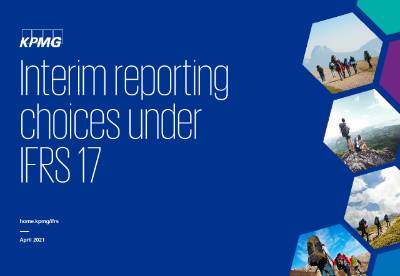Under the new insurance standard – IFRS 17 Insurance Contracts – companies preparing interim reports under IAS 34 Interim Reporting will need to make an accounting policy choice. This choice – whether to change the treatment of accounting estimates made in previous interim financial statements at each reporting date – will affect their reported financial performance.
To change the treatment of prior interim period accounting estimates or not?
Under the YTD approach, at each reporting date a company will disregard the treatment of estimates made in its previous interim financial statements. In contrast, under the PTP approach each interim period is treated as a discrete reporting period and the treatment of estimates made in previous interim financial statements remains unchanged.
Policy choice will affect reported financial performance
Typically under IAS 34, the measurement of annual results is generally not affected by the frequency of a company's financial reporting. The effects of changes in estimates are reflected in the current period and require no recalculation of results for prior annual or interim periods. However, if a company chooses to apply the PTP approach, its contractual service margin (CSM) will be affected by the frequency of interim reporting. This could make comparison of the CSM between companies difficult when they apply different approaches.
Next steps
A company’s accounting policy choice could have a significant impact for system design, and processes and controls. Taking the time now to analyse the appropriate policy choice carefully will help you plan for any operational impacts and for communicating those potential impacts to stakeholders.
Read our Interim reporting choices under IFRS 17 (PDF 780 KB) for more insight and analysis on this accounting policy choice, and how we can help.
Visit our IFRS – Insurance page for KPMG insight on accounting change under IFRS 17.
© 2024 KPMG IFRG Limited, a UK company, limited by guarantee. All rights reserved.


